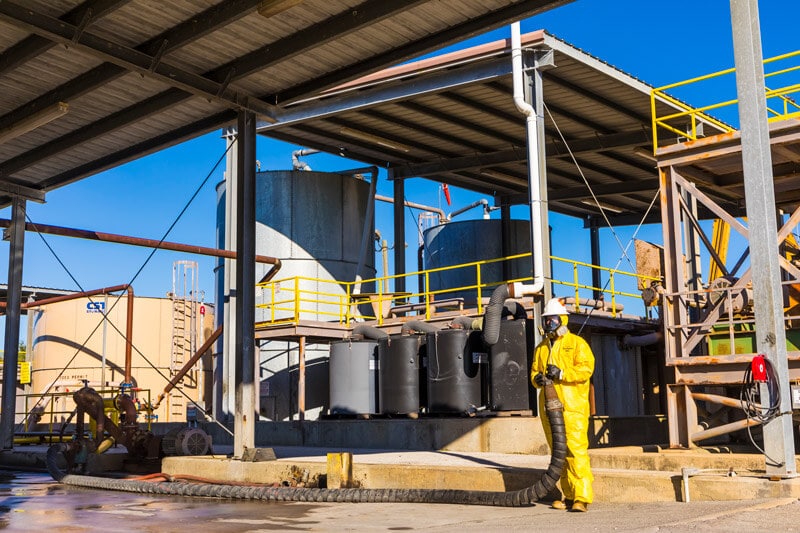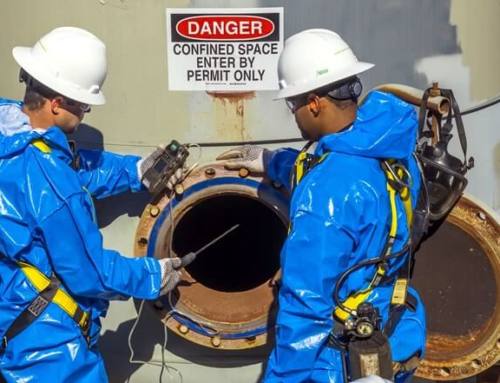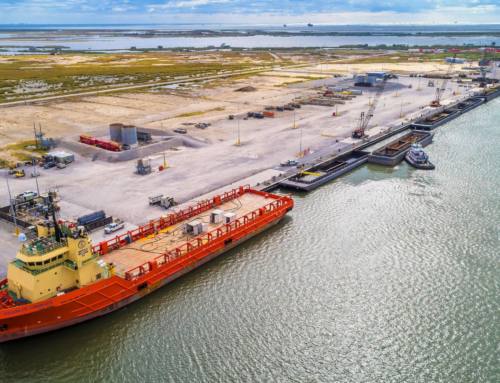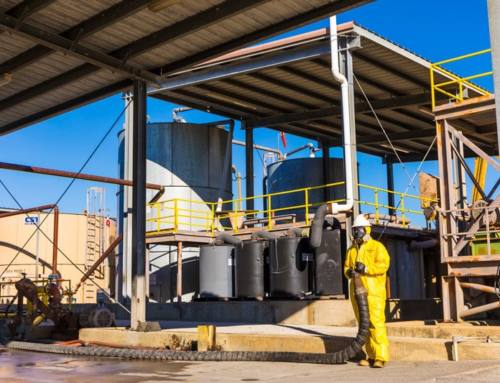The term “Naturally Occurring Radioactive Material” (NORM) refers to a type of natural material that features primordial radionuclides, usually associated with substances like thorium and uranium. These radioactive materials are naturally occurring in the materials that make up the earth’s crust, including the rocks, soil and minerals in the land around us.
In some circumstances, human activity can enhance the concentration of those radionuclides, in which case we’d refer to them as technologically enhanced NORM (TENORM). Certain types of industrial activities are more likely to produce TENORM, particularly activities associated with the oil and gas field. Drilling and fracking operations are both likely to produce operational wastes that contain NORM, the concentration of which is highly dependent on the area of the activity.
It is crucial for the safety of the environment and humans alike to keep levels of TENORM in check.

Regulations for NORM management
Each state controls its own regulations for NORM and TENORM waste management. Currently there are no federal statutes specifically geared toward regulation of these materials. Considering the science for how we understand NORM and the best methods of regulation is still evolving, this results in varying regulations from state to state.
There are many states that specifically prohibit the disposal of any radioactive materials in any type of landfill, whether those materials are natural or manmade. The degree to which these states enforce this regulation can vary. In some cases, NORM-containing waste will simply be rejected at a landfill, but in more severe circumstances, improper disposal may result in the landfill needing to undergo remediation in accordance with the Comprehensive Environmental Response, Compensation and Liability Act (CERCLA). Failure to perform this remediation may subject the producers of that waste to fines or imprisonment.
Limiting hazards
The radiation from NORM may be hazardous to workers in certain industries in which NORM exposure is prevalent, such as the oil and gas industry. The potential hazards depend on the concentration and quantity of NORM.
Even if the risks are small, it is important for companies with NORM exposure associated with their activities to do their best to limit those hazards as much as possible. The good news is radiation is relatively easy to detect with simple handheld radiation detection devices. This is important because the ionizing radiation that emanates from NORM cannot be seen, smelled, heard or felt—it is simply energy, and over time its exposure can result in cell damage and degradation.
Taking all of this into consideration, oil and gas companies (and other companies with high NORM exposure chances) should make it a priority to develop radiation survey strategies and safety precautions. Additionally, consider providing training in those strategies to ensure the workplace is safe for all employees and any waste with elevated NORM content is disposed of properly.
For more information about NORM waste management and regulations affecting your area, contact our experts today at Ecoserv.




